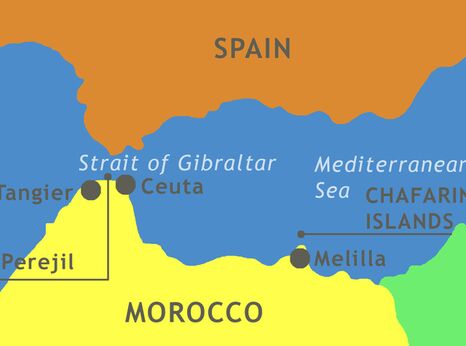Morocco/Western Sahara: Sahrawi activist detained incommunicado

Mohamed Lamine Haddi is a Sahrawi activist who participated in the 2010 Gdeim Izik camp protesting Sahrawis’ social and economic conditions. In November 2010, he was arrested in the violent clashes following the dismantling of the camp. In 2013, he was sentenced to 25 years in prison on charges of participation in and aiding a “criminal organisation,” and participation in violence against public forces which caused intended death under Articles 293, 129 and 267 of the Moroccan Penal Code. The military court which tried him and other Sahrawis did not investigate the defendants’ claims that they had been forced to sign confessions under torture. A civilian court confirmed his sentence in 2017, using the statements that he said had been made under torture.
According to Mohamed Lamine Haddi’s lawyer, during his first year in Tiflet II prison, he was only permitted to leave his cell for 15 minutes once per day, alone. Since then, he has been allowed out of his cell for maximum 1 hour per day, alone. During the winter, he is not allowed hot showers like other prisoners and on 14 December 2020, the prison director ordered all his private belongings be confiscated. Since being in Tiflet II, Mohamed Lamine Haddi has been banned from visits by his lawyer and family visits were banned in March 2020. The context of COVID-19 does not justify family visits being banned for such a prolonged period of time. On 16 January 2021, Mohamed Lamine Haddi’s lawyer wrote to the King's prosecutor and the Director of Tiflet II prison asking for an investigation into his prison conditions. Neither replied. Before starting his hunger strike, Mohamed Lamine Haddi told his lawyer that he would rather die than be kept in the conditions of Tiflet II, which is 1227km from his familiy in El-Ayoun, Western Sahara.
Mohamed Lamine Haddi started a hunger strike on 17 January 2021. His weekly 15 minute calls to his family were banned from 22 February 2021. His family issued a statement on 13 March 2021 declaring that his fate was unknown to them. Mohamed Lamine Haddi was allowed to call his mother for one and a half minutes on 23 March to tell her that the prison authorities force-fed him. His mother told Amnesty International that he sounded very weak and he could barely speak. He told her that he was suffering a partial paralysis on his left side. On 25 March, Mohamed Lamine Haddi was permitted to call his mother to tell her that he had been temporarily transferred to Kenitra prison to sit university exams. This transfer was made without any prior notification to Mohamed Lamine Haddi or his family. Mohamed Lamine Haddi told his family that he is still experiencing partial paralysis, as well as memory loss and pain in his left hand. Prison authorities continue to deny him access to a doctor. Authorities followed this same procedure with detained Sahrawi activist Abdeljalil Laaroussi in 2017. His lawyer told Amnesty International that, in order to hide his health status, authorities transferred Laaroussi to Bouzarkene prison to take university exams and forced him to be photographed.
Two other Gdeim Izik prisoners, Sidi Abdallah Abbahah and Bachir Khadda, are also held in solitary confinement in Tiflet II, 1227km from their families who all live in El-Ayoun. According to their lawyer, they are all victims of psychological torture, harassment and ill treatment. They are held in cells of around 5m² for at least 23 hours a day. Sidi Abdallah Abbahah told their lawyer that the prison guards and prison director frequently insult them and threaten them with torture, death and taking away their right to have showers. Since 2017 they have held several hunger strikes against the prolonged isolation and ill-treatment.
Human rights international standards, such as the United Nations’ Standard Minimum Rules for the Treatment of Prisoners, define solitary confinement as spending 22 hours or more per day without meaningful human contact. They provide that prolonged solitary confinement – over 15 consecutive days – is considered cruel, inhuman, or degrading treatment. Under the Moroccan Prison Law, solitary confinement is an exceptional measure imposed only as a security or protective measure for prisoners. Morocco’s Penal Code also criminalizes torture.
Western Sahara is the subject of a territorial dispute between Morocco, which annexed the territory in 1975 and claims sovereignty over it, and the Polisario Front, which calls for an independent state in the territory. In recent years, access to Western Sahara has grown increasingly difficult for external monitors as the human rights situation has continued to deteriorate. The UN Security Council has ignored calls by Amnesty International and others to add a human rights component to the United Nations Mission for the Referendum in Western Sahara (MINURSO), which would allow for monitoring and reporting on human rights abuses.